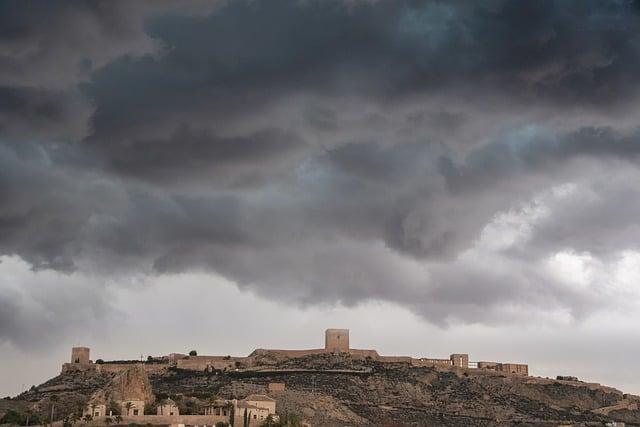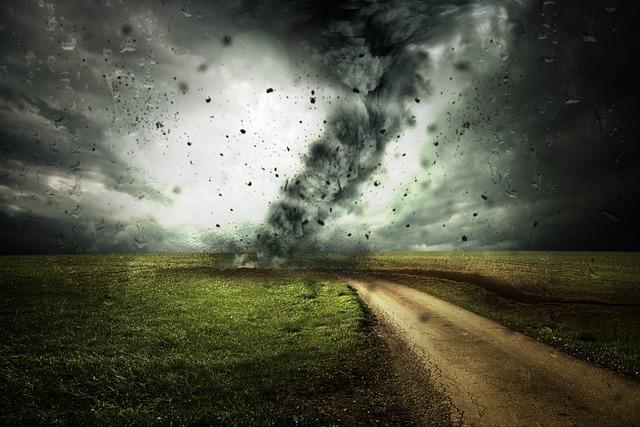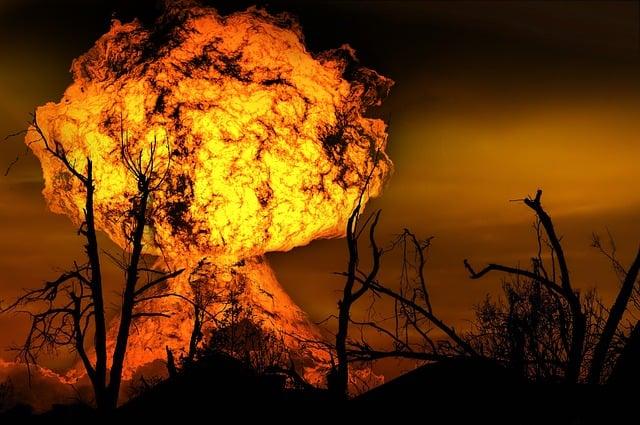- Introduction
- Definition of Extreme Weather Events
- Causes of Extreme Weather
- Impacts on People and Ecosystems
- How to Prepare and Adapt
- Conclusion
- FAQs
- References
Introduction
Extreme weather events are becoming increasingly frequent and intense due to the effects of climate change. These events, which range from hurricanes to prolonged droughts, bring significant challenges for communities worldwide. In this blog, we will explore what defines extreme weather, the factors driving it, its impacts on humans and ecosystems, and strategies for preparation and adaptation. By understanding these elements, we can better grasp how to minimize harm and increase resilience.
Let’s dive into this timely and important topic.
Definition of Extreme Weather Events

(Image: Pixabay/@ELG21)
Extreme weather events refer to unusual, severe, or unseasonal weather phenomena that occur at a greater intensity than typical conditions. These include hurricanes, tornadoes, floods, heatwaves, droughts, and blizzards. According to experts, an event is classified as "extreme" if it falls at the extremes of historical data.
For example, hurricanes like Hurricane Katrina and wildfires in California have left lasting marks on the planet. These natural disasters test our ability to combat and cope with adverse conditions.
As science advances, we can now predict and understand these events better, providing insights into how climate change intensifies these occurrences.
Causes of Extreme Weather

(Image: Pixabay/@51581)
The primary driver of extreme weather events is climate change, caused in part by rising greenhouse gas emissions. Global warming leads to higher sea surface temperatures, intensifying hurricanes and typhoons. Melting polar ice caps also disrupt global weather patterns, contributing to floods and droughts.
Atmospheric changes, such as jet stream alterations, play a critical role as well. For instance, shifts in polar air streams can bring unexpected heat or cold to areas ill-prepared for such conditions.
Human activities like deforestation, urbanization, and pollution exacerbate the issue, leaving ecosystems more vulnerable to extreme weather.
Impacts on People and Ecosystems

(Image: Pixabay/@ATDSPHOTO)
The repercussions of extreme weather events on people and ecosystems are profound. Communities face disruptions such as loss of homes, agricultural failure, and water shortages. Economically, countries spend billions annually on disaster recovery efforts and rebuilding infrastructure.
On ecosystems, the effects can be catastrophic. Floods destroy habitats, while droughts threaten biodiversity and crop production. Furthermore, ocean acidification due to global warming has a domino effect on marine life and dependent communities.
Emotional and mental health impacts, such as trauma and anxiety, often arise after experiencing these disasters, putting immense pressure on healthcare systems.
How to Prepare and Adapt

(Image: Pixabay/@geralt)
Preparation begins with awareness. Governments, organizations, and individuals must understand local vulnerabilities and prepare accordingly. Strong building codes, improved drainage systems, and early warning systems can significantly reduce damage.
Adaptation techniques for individuals include creating emergency kits, having evacuation plans, and staying informed about potential hazards. Community outreach initiatives to educate citizens are also essential.
On a global scale, investment in renewable energy and afforestation can help mitigate the climate crisis, potentially reducing the frequency of extreme weather events.
Conclusion
Extreme weather events are an undeniable consequence of our changing climate, posing serious challenges to humanity and the environment. Understanding their causes, consequences, and potential solutions is key to protecting ourselves and building resilience. While the problem is complex, collective action can make a significant difference in safeguarding our future against climate-related catastrophes.
FAQs
What is an extreme weather event?
It refers to unusually severe or unseasonal weather phenomena such as hurricanes, heatwaves, and floods that occur at levels far above the normal range.
How does climate change contribute to extreme weather?
Climate change leads to higher global temperatures, melting ice caps, and disrupted weather patterns, all of which intensify extreme weather events.
What can individuals do to prepare for extreme weather?
Individuals can create emergency kits, develop evacuation plans, and stay informed about potential weather hazards to enhance personal preparedness.

